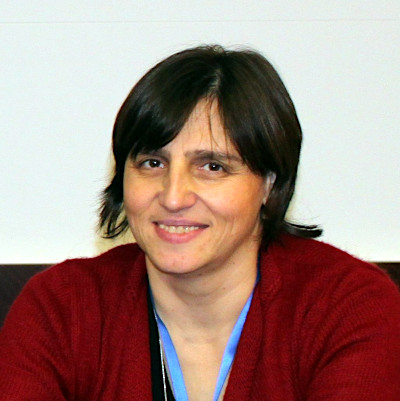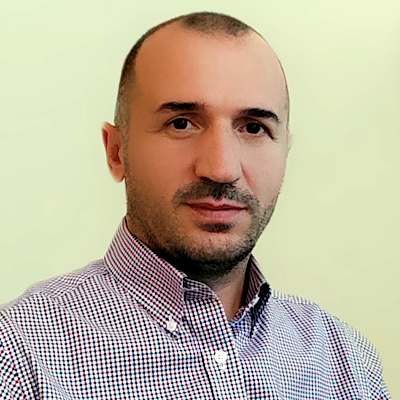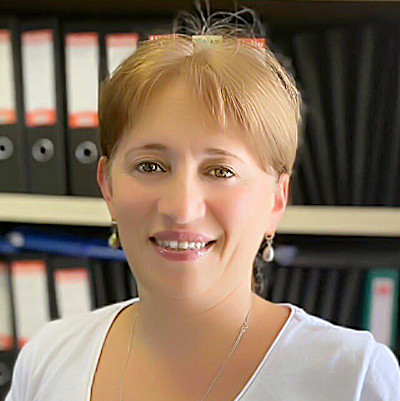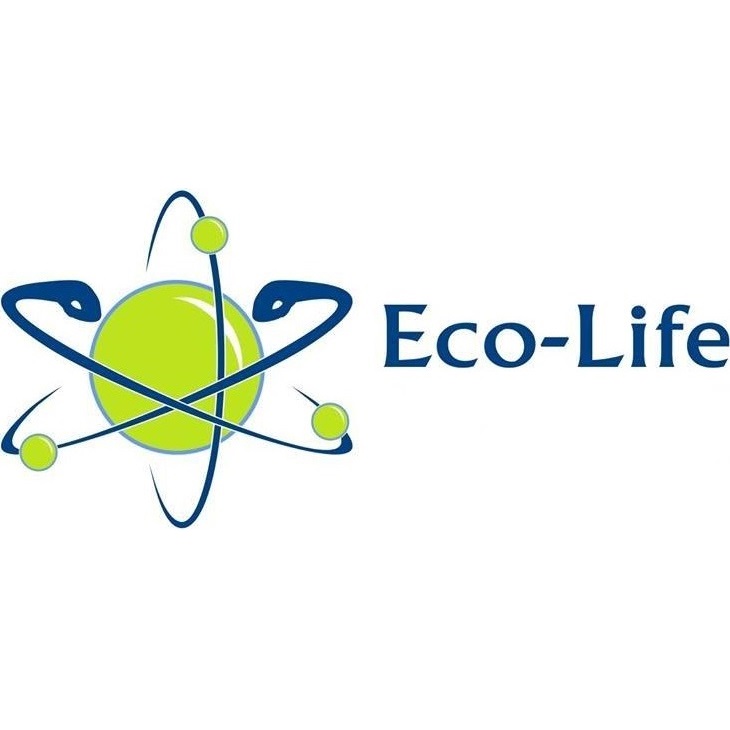Georgia
Georgia is a country at the intersection of Eastern Europe and Western Asia. It is part of the South Caucasus, bounded by the Black Sea to the west, by Russia to the north and east, by Turkey to the southwest, by Armenia to the south, and by Azerbaijan to the southeast. The country covers an area of 69,700 square kilometers (26,900 sq mi), and has a population of 3.7 million people. Tbilisi is its capital as well as its largest city, home to roughly a third of the Georgian population.

Since the early 21st century visible positive developments have been observed in the economy of Georgia. In 2007, Georgia’s real GDP growth rate reached 12 per cent, making Georgia one of the fastest-growing economies in Eastern Europe.Georgia has become more integrated into the global trading network: its 2015 imports and exports account for 50% and 21% of GDP respectively. Georgia’s main imports are fuels, vehicles, machinery and parts, grain and other foods, pharmaceuticals. Main exports are vehicles, ferro-alloys, fertilizers, nuts, scrap metal, gold, copper ores. The World Bank dubbed Georgia “the number one economic reformer in the world” because it has in one year improved from rank 112th to 18th in terms of ease of doing business, and by 2020 further improved its position to 6th in the world.As of 2021, it ranked 12th in the world for economic freedom. In 2019, Georgia ranked 61st on the Human Development Index (HDI). Between 2000 and 2019, Georgia’s HDI score improved by 17.7%. Of factors contributing to HDI, education had the most positive influenceas Georgia ranks in the top quintile in terms of education.
Land and forest degradation
The Georgian Ministry of Environment Protection and Agriculture rates 35% of its agricultural land as being degraded and 60% of agrarian land in Georgia is of low or middle production quality. Significant drivers of land degradation are overgrazing, unplanned urban sprawling, and deforestation. Georgia had a 2018 Forest Landscape Integrity Index mean score of 7.79/10, ranking it 31st globally out of 172 countries.
Soil erosion processes, although considered natural phenomena, are exacerbated by different kinds of unsustainable human activities. Some of these are unsustainable mining and construction (e.g. hydropower infrastructures like Shuakhevi Hydro Power Plant), uncontrolled logging, poorly regulated urbanization, industrial activities in riverbeds, and a lack of compliance with land use regulations and with environmental and hydrological standards.
Due to the deterioration of land and the overlooked issues regarding the environment, flood control and determent of such periodical calamities caused by landslides and flash floods are imminent.
Air pollution
Deterioration of air quality is one of the many consequences of increased economic activity that comes with urbanization. In the case of Georgia, air pollution mainly comes from the transportation, industrial, and energy sectors. The major ambient air pollutants monitored in Georgia include particulate matter (total suspended particulates [TSP]), carbon monoxide (CO), nitrogen oxides (NO2, NO), and sulfur dioxide (SO2).
In Georgia the public transport system is not sufficiently developed. A significant proportion of the population uses private vehicles as the preferred mode of transport. The number of private vehicles has grown rapidly over the past decade and has almost doubled in the last five-year period. Traffic has increased followed by industrial sources. The country has seen a sharp rise in the number of old, dirty diesel vehicles on the road over the last decade and pollution testing is virtually non-existent. WHO and IEA provides a data that shows Georgia having the most deaths attributed to air pollution, compared to other countries.
Until 2000, Georgia used leaded fuel in most of their transportation system. Soviet auto models can run on low octane gasoline; European models run superior around higher-octane gas. A way to increase a fuel’s octane level is to add lead. Majority of road vehicles (total number of vehicles approx. 323614) in Georgia today both public and private is of 15–20 years old. Many older cars require leaded petrol because the lead lubricates and protects the soft valves. Georgia is importing increasing numbers of 2nd hand European cars with catalytic converters and it imports a lot of low octane gas, which is at times manipulated through the addition of lead, to obtain higher octane/leaded gasoline. This in turn affects the composition of exhaust emissions, making its concentrations high in lead and benzene concentrations. August 14, 2018
Water resources and pollution
Georgia has plentiful water assets. Among the aggregate water assets of 63 trillion cubic metres (2.2×1015 cu ft) /year (long haul normal) just 1.6 billion m3/year or around 2% are being preoccupied. Around 66% of the disconnected water is utilized for inundated horticulture, and the other third for city and mechanical employments.
Significant issues that lead to water pollution are surface water contamination by squanders and unreasonable water utilization. Water contamination is associated with human movement, such as industrial waste, municipal waste, waste from health centers, and surfaces waste from agri-production. Waste management problems are a big contributor to pollution in the country of Georgia.
Areas along Georgia, around 310 kilometers of coastline, are starting to feel the effects of conduit waste water that is beginning from the development of more than 170 million people who live adjacent the various streams that energize the Black Sea.
Black Sea
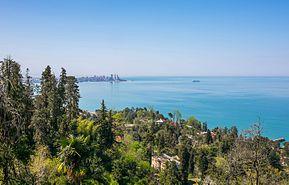
Located in the West of Georgia is the Black Sea. Zones along Georgia’s just about 310 kilometers of coastline are beginning to feel the impacts of waterway waste, water that is starting from the movement of more than 170 million individuals who live nearby the numerous streams that encourage the Black Sea. This could result in loss in biological species, extinction, and negative impacts on human health. In Georgia, similar to the case in numerous nations, low public mindfulness and comprehension of the effect that anthropogenic exercises have on the earth has been a center driver of its commitment to the contaminated waters of the Black Sea.
Waste management
The effect of waste and chemical clutter led to one of the most prominent environmental problems in Georgia. Environmental pollution caused by littering of hazardous wastes and landfill abuse puts the country into habitual danger. Moreover, accumulated litter and disorderly management of trash aggravate the current situation of their domain. There are 63 registered landfills, which occupy more than 300 ha of which 203 ha are active landfills (MENRP 2012). Most of these landfill sites operate without proper measure, supervision by the government, and proper integration of waste collection system. Currently, the standardized collection of household wastes is only executed in big cities and district centers, disregarding garbage collection in other places, which further impairs the waste management issue of their country. In some settlements, particularly in villages, residents tend to solve their waste problems by dumping wastes in nearby ravines, along the roads or onto riverbanks.
Georgia’s waste management problem results in different kinds of pollution and negatively affects the public’s health. According to National Center for Disease Control, morbidity per 100,000 population from respiratory diseases has been on the rise.
Implemented projects:
- Toxic Sites Identification Program (TSIP) in Georgia PECP project
Proposed future projects:
- Contaminate site deep assessment and remediation in former paint production plant – Litafoni Kutaisi Georgia; Rioni Rever which is affected by the contamination is one of the biggest river flowing into Black Sea this project can be considered as interesting ptoject for Black Sea Protection
- Contaminated site assessment and TSIP platform
- Climate smart approaches — awareness rising on sustainable usage of water resources

